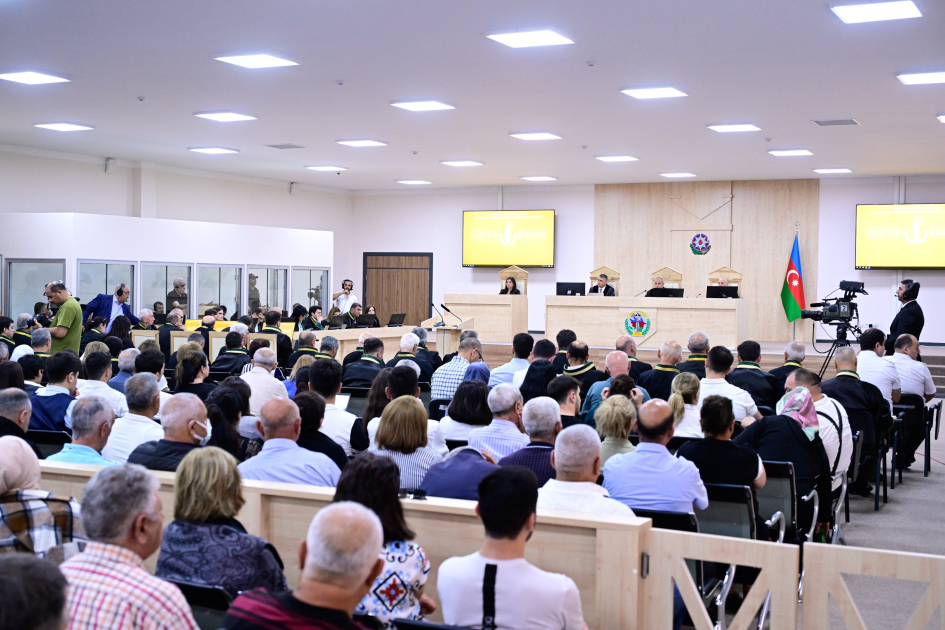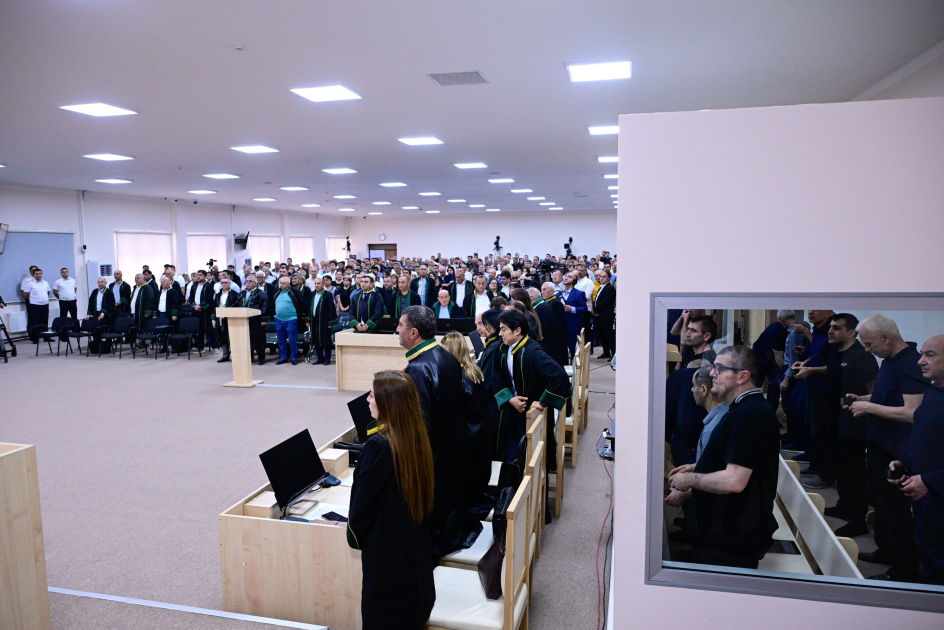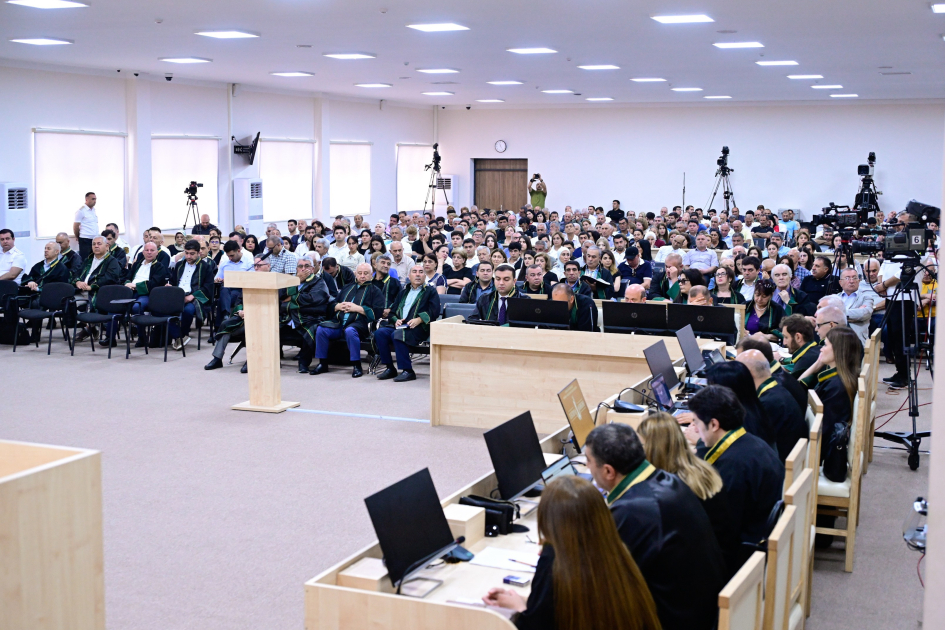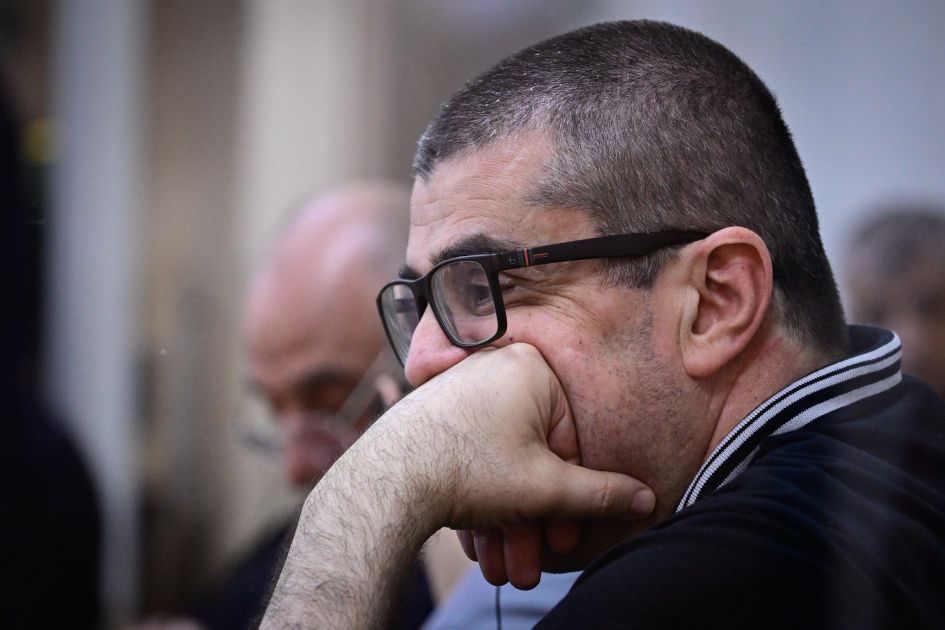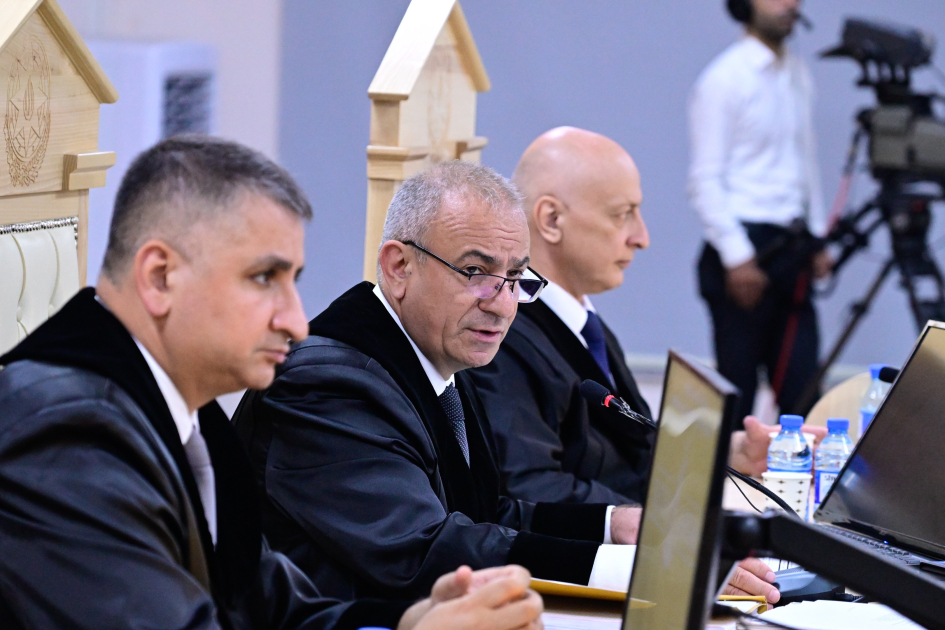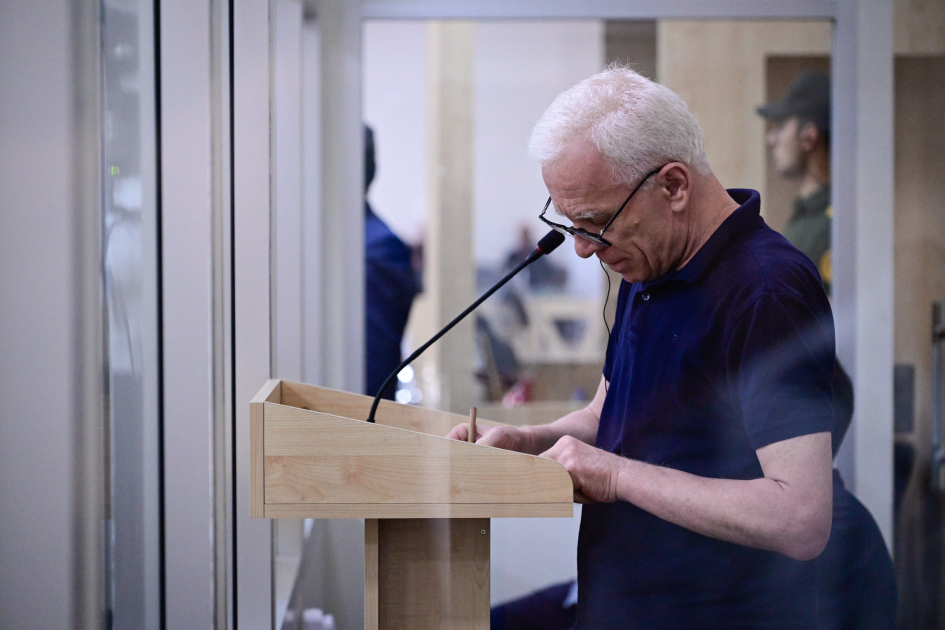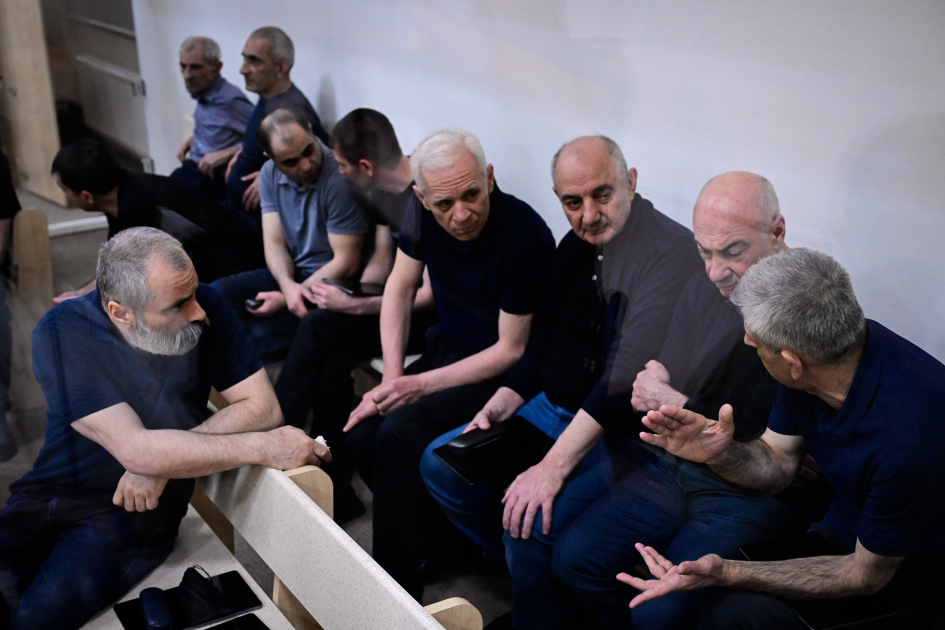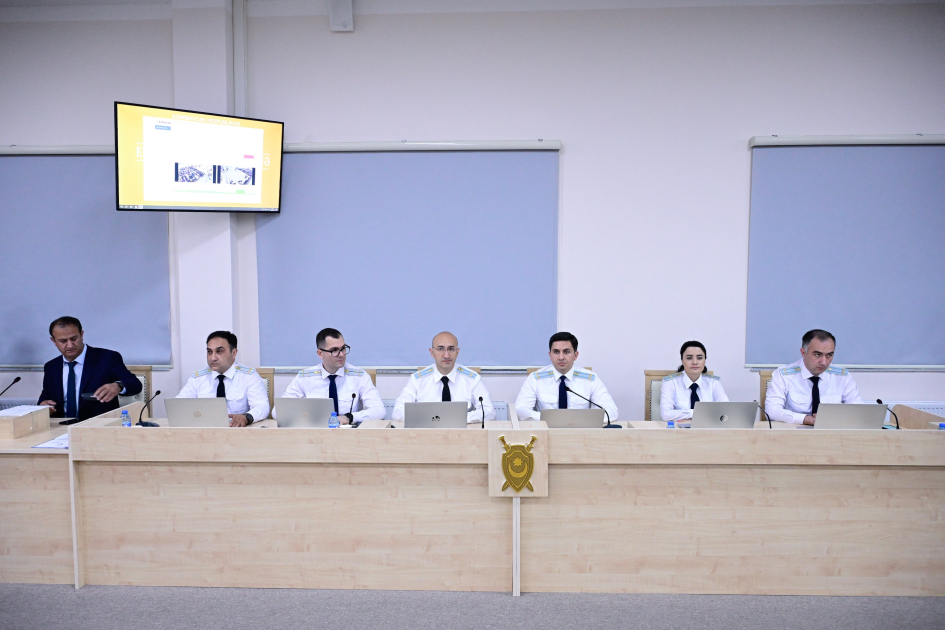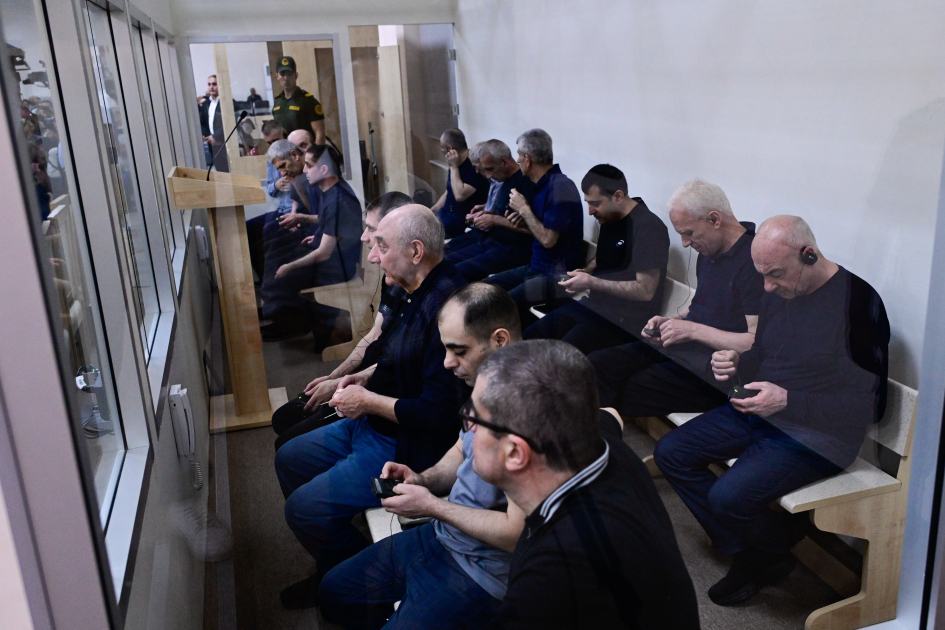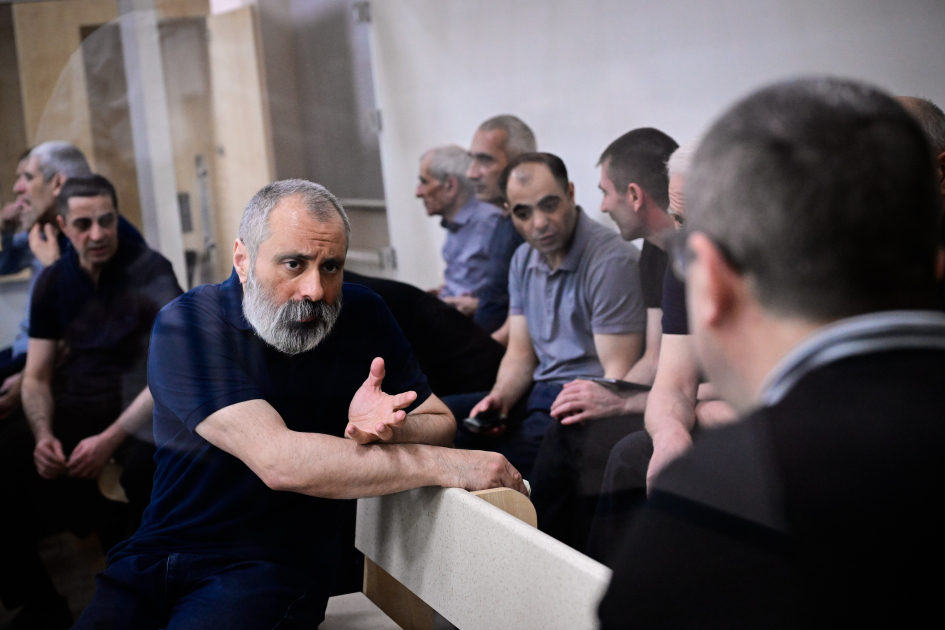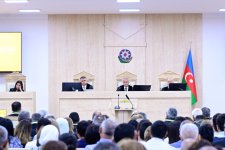BAKU, Azerbaijan, June 12. The open court session in the criminal case against Arayik Harutyunyan, Arkadi Ghukasyan, Bako Sahakyan, Davit Ishkhanyan, David Babayan, Levon Mnatsakanyan, and others - citizens of the Republic of Armenia - continued on June 12, Trend reports.
The defendants stand accused of crimes against peace and humanity, war crimes, including the planning and conduct of aggressive warfare, genocide, violations of the laws and customs of war, terrorism, financing of terrorism, forcible seizure and retention of power, and numerous other offenses stemming from Armenia’s military aggression against Azerbaijan.
Held at the Baku Military Court under the chairmanship of Judge Zeynal Aghayev, with Jamal Ramazanov and Anar Rzayev (reserve judge Gunel Samadova) presiding, the session ensured that each defendant was provided with a translator in their native language and legal representation.
The defendants, their lawyers, several victims and their legal successors, as well as the prosecutors representing the state, participated in the hearing.
During the session, the accused Levon Mnatsakanyan answered questions from the state prosecutor regarding the 2016 events known as the “April battles.” At the time, Mnatsakanyan served as the “defense minister” of the so-called regime, holding the rank of lieutenant general. He admitted that 18 combat positions were lost during the April battles.
In response to questions from Nasir Bayramov, Head of the Department of Public Prosecution Defense at the Prosecutor General’s Office, Mnatsakanyan claimed that civilian areas were not deliberately targeted during the April battles. He said those areas contained military units, equipment, and personnel, and that any damage to homes was coincidental. “There was no attack on the village. We did not open fire on the village,” he said.
The court examined parts of Mnatsakanyan's interviews with journalists following the April battles. In one interview, he stated: “The overall situation is under control. The troops are at the proper degree of battle preparedness. Our borders are secure and in reliable hands.” When asked by a journalist whether "the other side is also being defended," he answered, “Yes.”
The prosecutor confronted Mnatsakanyan with the contradiction between his courtroom claim of having made no public statements during the April battles and the interview footage. When asked who he referred to as “the other side” and what kind of attack was being defended against, Mnatsakanyan did not provide a specific answer.
Another interview featuring Mnatsakanyan was shown, in which he appeared in the Jidir Duzu plain discussing the battles of February 24–25, 2015, and the April 2016 clashes. He referred to the Azerbaijani special forces as the “Yashma Brigade,” acknowledging their participation in the battles. He outlined the regime’s military developments, stating:
“Improvement means that we must further strengthen the capabilities we have. We must expand the capabilities of our firepower and systems. We are carrying out relevant work in this direction. In particular, we are expanding in the field of observation devices. Progress has been made in both fire and destruction systems. We had certain shortcomings in some limited conditions, but now - whether in the morning or in the afternoon - we can fire effectively.
Moreover, we have improved our management capabilities. This is also included in the overall system. We have made progress in both reconnaissance and firing. In addition, practical measures are being taken concerning the new technologies and technical means we have acquired. Work is also underway on the military-industrial complex.
There are also longer-range anti-tank and other modern means. In addition, we have acquired new technologies and firepower. Personnel are also being trained to use these means.”
He explained that the interview was initially intended to be recorded on a balcony near “Isa Bulaghi,” but due to lighting issues, it was relocated to the Jidir Duzu plain.
After a break, the court examined another video retrieved from the internet, showing a dispute between Levon Mnatsakanyan and former “defense minister” Samvel Babayan. In the footage, Mnatsakanyan accused Babayan of surrendering 21 kilometers of territory to Azerbaijan in 1994.
Babayan had previously criticized the Armenian leadership for strategic failures during the April battles. While not denying territorial losses, Mnatsakanyan countered by urging Babayan to recall how land was surrendered in 1994. Babayan referred to the 2016 clashes as a “sabotage,” whereas Mnatsakanyan insisted it was a full-scale military operation.
Further footage shown in court depicted former Armenian Prime Minister Karen Karapetyan and the so-called regime’s “prime minister” Arayik Harutyunyan meeting with servicemen in Azerbaijan’s then-occupied territories. Mnatsakanyan confirmed that Armenian officials, including ministers of defense and foreign affairs, frequently visited the region.
Additional footage showed former Armenian Defense Minister Davit Tonoyan inspecting the regime's “military structure,” accompanied by former Foreign Minister Zohrab Mnatsakanyan and the regime’s “foreign minister.”
During questioning about landmines in Azerbaijani territories, Mnatsakanyan said mines had been planted in both the northern and southern directions. He stated that after placement, documentation was submitted to higher headquarters: one copy remained with the military unit, and others were stored in the engineering troops’ office. He emphasized that mine placement forms showed precise locations, whereas mine maps only indicated general districts.
Mnatsakanyan revealed that the mines were initially produced in the Soviet Union, later procured from Russia, and then delivered to the separatist regime via Armenia. More recently, they had also been manufactured in Armenia. He admitted to planting both anti-personnel and anti-tank mines in the formerly occupied areas.
The next court session is scheduled for June 13.
The defendants — Arayik Vladimiri Harutyunyan, Arkadi Arshaviri Ghukasyan, Bako Sahaki Sahakyan, Davit Rubeni Ishkhanyan, David Azatini Manukyan, Davit Klimi Babayan, Levon Henrikovich Mnatsakanyan, Vasili Ivani Beglaryan, Erik Roberti Ghazaryan, Davit Nelsoni Allahverdiyan, Gurgen Homeri Stepanyan, Levon Romiki Balayan, Madat Arakelovich Babayan, Garik Grigori Martirosyan, and Melikset Vladimiri Pashayan — are charged under the following articles of the Criminal Code of the Republic of Azerbaijan: Article 100 (planning, preparing, initiating, and waging a war of aggression); Article 102 (attacking persons or organizations enjoying international protection); Article 103 (genocide); Article 105 (extermination of the population); Article 106 (enslavement); Article 107 (deportation or forced displacement of population); Article 109 (persecution); Article 110 (enforced disappearance of persons); Article 112 (deprivation of liberty contrary to international law); Article 113 (torture); Article 114 (mercenary service); Article 115 (violation of the laws and customs of warfare); Article 116 (violation of international humanitarian law during armed conflict); Article 118 (military robbery); Article 120 (intentional murder); Article 192 (illegal entrepreneurship); Article 214 (terrorism); Article 214-1 (financing terrorism); Article 218 (creation of a criminal organization); Article 228 (illegal acquisition, transfer, sale, storage, transportation, and possession of weapons, ammunition, explosives, and devices); Article 270-1 (acts threatening aviation security); Article 277 (assassination of a state official or public figure); Article 278 (forcible seizure and retention of power, forcible change of the constitutional structure of the state); Article 279 (creation of armed groups not provided for by law); and other articles.

